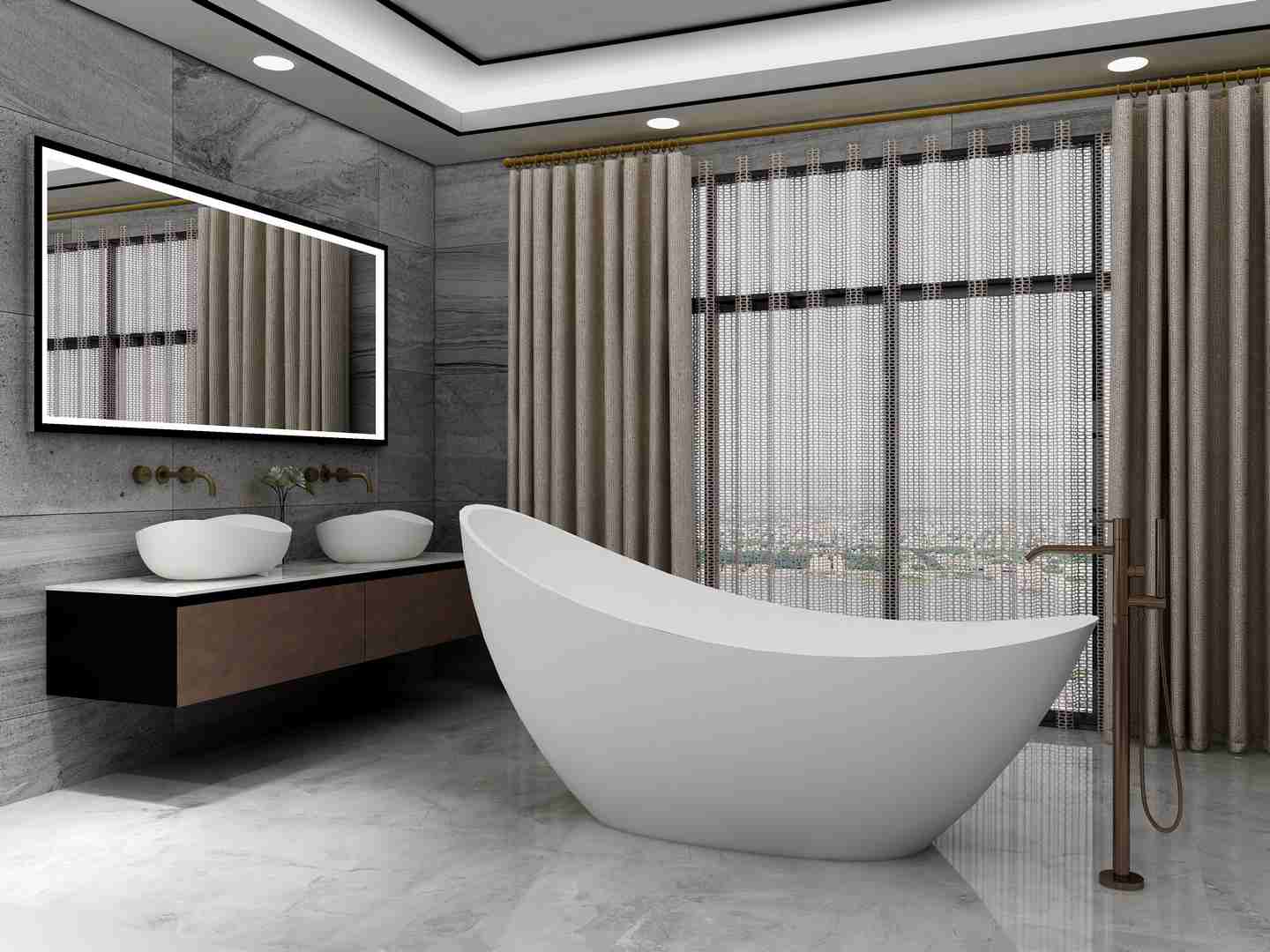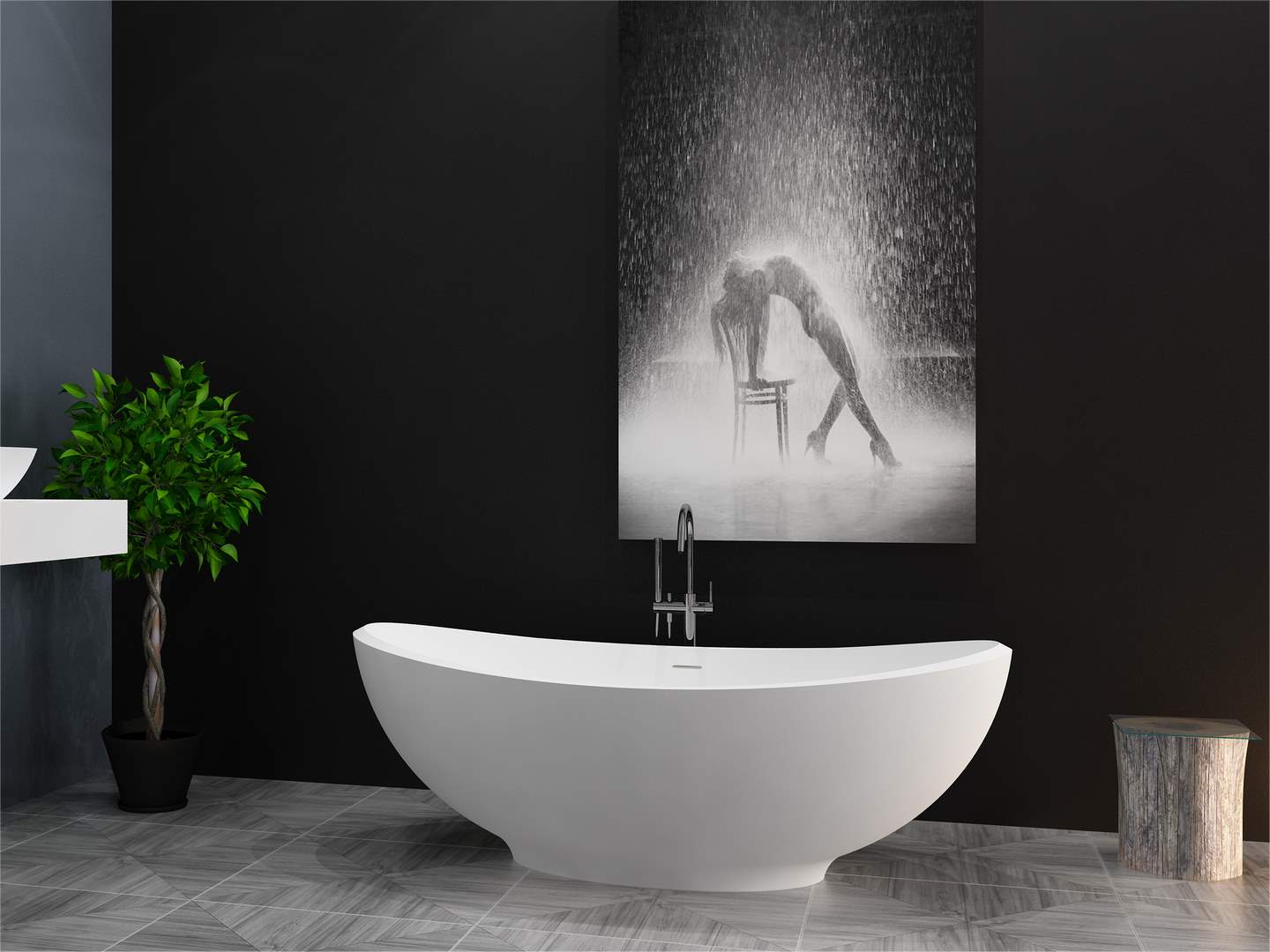Information about bathtub wholesale distributors
Introduction
In the realm of bathroom design and products, understanding the nuances of bathtub wholesale distributors is pivotal for informed choices.
As we delve into the world of bathtubs, Cpingao, a leader in the industry, takes the lead in unraveling the crucial information surrounding bathtub wholesale distributors.
For those seeking comprehensive insights, this article commits to unraveling the essential aspects that define bathtub wholesale distributors.
From the longevity of different bathtubs to the optimal thickness and the most comfortable designs, we pledge to provide a holistic view.
This is your go-to guide for making informed decisions in the realm of bathtub acquisitions.
In the subsequent sections, we will explore key considerations such as the longevity of bathtubs, their average lifespan, the comfort factor, the optimal thickness, and the three standard sizes available.
By the end, you'll not only grasp what information bathtub wholesale distributors focus on but also gain the knowledge needed to select the perfect bathtub tailored to your preferences and requirements.
Let's embark on a journey to uncover the secrets of bathtub wholesale distributors.

1. Which bathtubs last the longest
Fiberglass Tub:
Lifespan: 10 to 15 years.
Features: Lightweight and affordable.
Benefits: Suitable for budget-conscious consumers, but may require replacement sooner.
Enameled Steel Tub:
Lifespan: 10 to 30 years.
Features: Enamel-coated for durability.
Benefits: Offers a balance between affordability and longevity. Regular maintenance enhances lifespan.
Cast Iron Tub:
Lifespan: Can last as long as the house.
Features: Sturdy construction with an enamel layer.
Benefits: Exceptional durability, making it a long-term investment. Regular care ensures prolonged life.
Composite Solid Surface Tubs:
Features: Made of composite materials, non-porous, stain-resistant.
Benefits: Durable and long-lasting. Resists stains and maintains a sleek appearance.
Enameled Cast Iron Bathtubs:
Features: Enamel layer for durability and easy cleaning.
Benefits: Long-lasting with proper care. Combines the strength of cast iron with a smooth surface.
Fiberglass-Reinforced Acrylic Bathtubs:
Features: Extra strength from fiberglass reinforcement.
Benefits: Improved longevity, resistance to cracking. Suitable for those desiring durability in a lightweight design.
High-Quality Acrylic Bathtubs:
Features: Durable, scratch-resistant, fade-resistant.
Benefits: Opt for thick acrylic for added strength and longevity. Ideal for a lasting, low-maintenance solution.
Enameled Steel Bathtubs:
Features: Steel core coated with enamel.
Benefits: Affordable with good durability. Regular maintenance prevents chipped enamel.

2. What is the life span of a bathtub
Delving into the longevity of bathtubs unveils a spectrum of materials, each dictating its own lifespan.
Cast Iron Bathtubs:
Lifespan: Decades, often 50 years or more.
Features: Known for durability, scratch resistance, and dent resilience.
Benefits: With proper care, a timeless investment that outlasts many other options.
Enameled Steel Bathtubs:
Lifespan: About 15 to 20 years or more with regular maintenance.
Features: Steel core coated with enamel for durability.
Benefits: Durable option, though may chip more easily over time.
Acrylic Bathtubs:
Lifespan: Approximately 20 to 30 years with proper maintenance.
Features: Lighter than cast iron, resistant to scratches and fading.
Benefits: Long-lasting, though proper handling is crucial to avoid cracking.
Fiberglass Tubs:
Lifespan: Around 20 years with regular maintenance.
Features: Lightweight and affordable.
Benefits: Requires careful handling to avoid scratching, a budget-friendly option with moderate longevity.
Composites (Fiberglass/Acrylic Blends):
Lifespan: About 20 to 30 years.
Features: Crafted from a blend of materials for enhanced durability.
Benefits: Strikes a balance between longevity and damage resistance.
Copper Bathtubs:
Lifespan: Decades with proper maintenance.
Features: Resistant to corrosion, develops a unique patina over time.
Benefits: Aesthetic appeal and longevity make copper a distinctive choice.
Stone Bathtubs (e.g., Granite, Marble):
Lifespan: Long, contingent on proper maintenance.
Features: Natural stone elegance with durability.
Benefits: Requires more maintenance but offers a unique, lasting aesthetic.

3.Which bathtub is most comfortable
Embarking on a quest for comfort in your bathing experience opens up a realm of design considerations.
Oval Bathtubs:
Features:
Inherent lumbar angle for optimal body rest.
Benefits:
Provides the necessary support and comfort for your back, enhancing the soaking experience. The design accommodates without interfering with the tub faucet.
Soaking Tubs:
Features:
Deep and immersive, covering the entire body when filled.
Benefits:
Delivers a relaxing and comfortable soaking experience. Available in various shapes, including oval, round, and rectangular, catering to diverse preferences.
Freestanding Bathtubs:
Features:
Ergonomic design with smooth curves.
Benefits:
Ideal for extended bathing sessions, offering ample space to stretch out and unwind.
The ergonomic design enhances overall comfort.
Jet and Whirlpool Tubs:
Features:
Built-in jet or whirlpool systems for a massage-like experience.
Benefits:
Relaxes muscles and joints, providing a customizable water pressure experience.
The adjustable jets cater to individual preferences, offering a personalized spa-like indulgence.
Choosing the most comfortable bathtub involves considering your personal preferences and how you envision your bathing experience.
Whether it's the lumbar support of an oval tub, the immersive soak of a soaking tub, the spacious comfort of a freestanding tub, or the therapeutic massage from jet and whirlpool systems – each option holds unique allure.

4. What is the best thickness for a bathtub
Understanding the thickness of your bathtub material is crucial for both stability and durability.
Acrylic Bathtub:
Thickness Range: 1/8 inch to 1/4 inch (3 mm to 6 mm)
Caution: Acrylic, being lightweight and durable, benefits from thicker construction for increased stability and durability. However, keep in mind that thicker acrylic also adds weight to the tub.
Fiberglass Tubs:
Thickness Range: 1/8 inch to 3/16 inch (3 mm to 5 mm)
Note: Renowned for its lightweight and affordability, thicker fiberglass enhances durability. Careful balance is needed to avoid unnecessary weight.
Cast Iron Tubs:
Thickness Range: 1/4 in. to 1/2 in. (6 mm to 13 mm)
Caution: Heavy and durable cast iron benefits from thicker construction, providing excellent insulation, durability, and scratch resistance. However, it also contributes to the overall weight of the tub.
Steel Tubs:
Thickness Range: 1/16 inch to 1/8 inch (1.5 mm to 3 mm)
Note: Enameled steel bathtubs, lighter than cast iron, maintain durability. Opting for thicker steel enhances the tub's strength without compromising on weight.
Solid Surface and Composite Tubs:
Thickness Range: Varies
Considerations: Solid surface materials, including composite mixtures, offer design flexibility with varying thicknesses. These materials aim to combine durability with aesthetic appeal.
Choosing the optimal thickness depends on your preferences, bathroom layout, and the desired balance between durability and weight.

5) What are the three standard sizes for bathtubs
Understanding the dimensions of bathtubs is paramount for creating a harmonious and functional bathroom space.
Here, we explore the three standard sizes for bathtubs and various specialized options offered by bathtub wholesale distributors:
Standard Bathtub Dimensions:
Length: Approximately 60 inches (152.4 cm)
Width: 30 to 32 inches (76.2 to 81.3 cm)
Depth: 14 to 18 inches (35.6 to 45.7 cm)
Alcove Tub Dimensions:
Similar to standard bathtubs.
Designed for installation against three walls in an enclosure.
Soaking Tub Dimensions:
Length: 60 to 72 inches (152.4 to 182.9 cm)
Width: 32 to 48 inches (81.3 to 121.9 cm)
Depth: 20 inches (50.8 cm) or more for an immersive experience.
Corner Bathtubs:
Sizes range from about 54 to 72 inches (137.2 to 182.9 cm) on each side.
Designed to fit into bathroom corners.
Freestanding Tubs:
Varied shapes and sizes, usually 55 to 72 inches (139.7 to 182.9 cm) or longer.
Focal points of the bathroom, not attached to walls.
Walk-in Tubs:
Tailored for people with mobility issues.
Sizes may vary but often align with standard bathtub dimensions.
Compact Bathtubs:
Designed for limited bathroom space.
Lengths range from 48 to 60 inches (121.9 to 152.4 cm).
Oval or Round Bathtubs:
Freestanding with unique aesthetics.
Common lengths include 60 to 72 inches (152.4 to 182.9 cm).
Double-Ended Bathtubs:
Symmetrical design with the faucet and drain in the center.
Lengths range from 60 to 72 inches (152.4 to 182.9 cm).

Conclusion
In navigating the realm of bathtub wholesale distributors, our exploration has uncovered key facets crucial for informed decisions.
From unraveling the longevity of different materials to deciphering the optimal thickness and diving into the comfort and sizes of bathtubs, we've provided a comprehensive guide.
When seeking from wholesale bathroom tub suppliers, the durability of cast iron, comfort of soaking tubs, and versatility of standard sizes stand out as paramount considerations.
Whether immersing in the rejuvenating depth of a soaking tub or choosing the perfect size for your space, this guide equips you to navigate the diverse offerings of bathtub wholesale distributors with confidence and clarity.
Welcome to know more detailed information about products in Cpingao:
